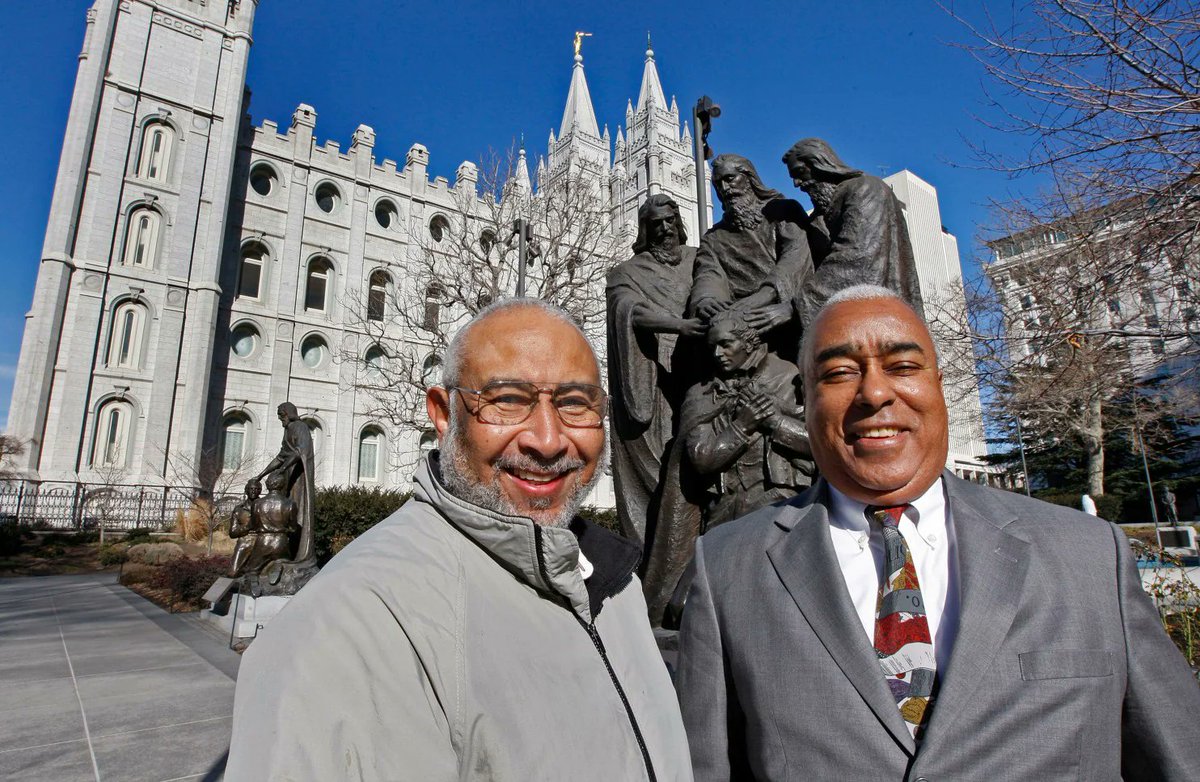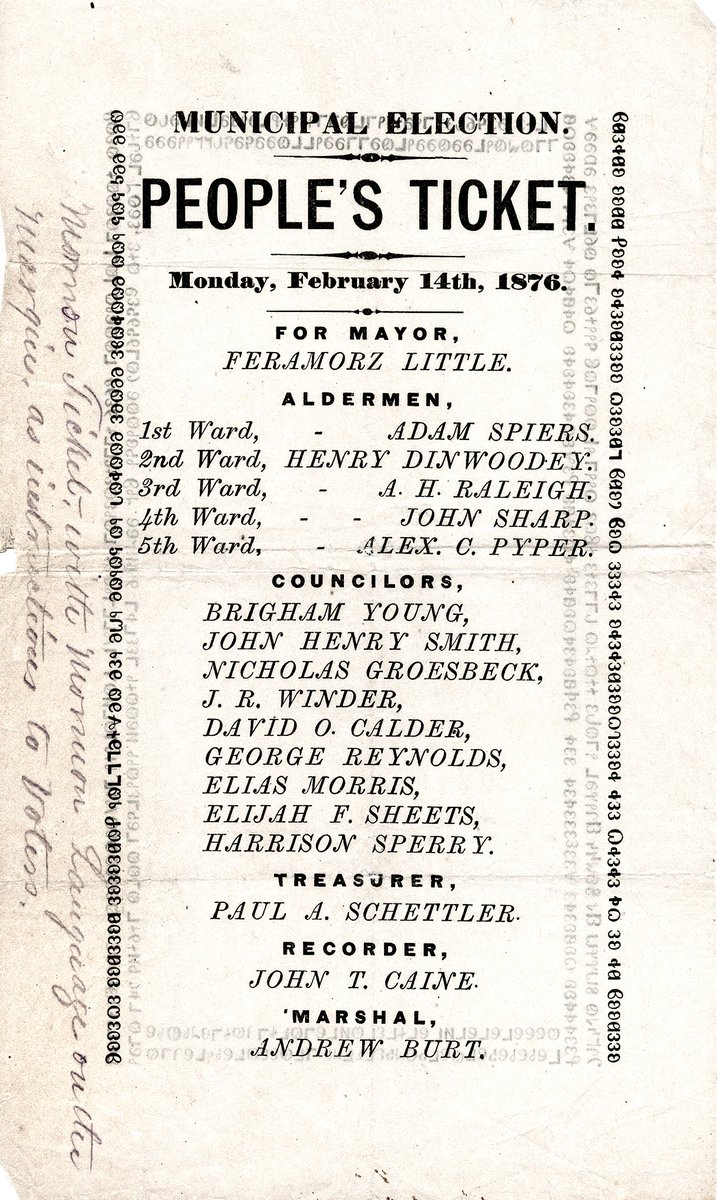
The pictures of all the protests across the nation have lifted me, but this one one with the "Mormons Against Racism" sign gave me a tear. It's from Atlanta--courtesy @alleycatrn--and it struck me because of something I encountered in my #MormonAmerica research. A quick thread./1 

As I mentioned in another thread, 1968 was a crossroads for both Mormonism and America when it came to race, as protests erupted across the nation. LDS Church leaders featured those both sympathetic and angered by the civil rights movement. /2
https://twitter.com/BenjaminEPark/status/1267489043840827392
In July of that year, the First Presidency received a letter from William Nichols, who presided over the LDS stake in Atlanta. Nichols was requesting permission to take part in a multi-religious protest in favor of civil rights in the city. /3
Nichols mentioned how Atlanta had been a hub for racial protests--the March on Washington began there, MLK was raised there, and ministers prided themselves on taking a part in the protests. Nichols hoped participating with them would build camaraderie. /4
But the First Presidency was hesitant. They had been dealing with the race problem all year, and they feared the protests were going to far. Indeed, their only concrete action in response to the protests was to increase security around church offices and temples. /5
But they also didn't want bad press. So they told Nichols to neither participate in or publicly condemn the protests, "but merely to take a completely neutral stand in the matter." They were sitting out the crisis. /6
As @_joannabrooks has argued in her new book--my review goes up Monday!--this silence was part of an attempt to maintain the status quo, perpetuate the existing racial system, and preserve racial innocence. /7 global.oup.com/academic/produ…
I'd also be remiss if I didn't point out the tragic irony that the same reasoning some LDS leaders gave for black men & women being cursed--that they remained neutral on important matters in the pre-mortal existence--could be leveled against them as well. /8
Anyways, zoom forward 52 years, and in another moment of racial protests, the Atlanta stake president decided to get involved with a march, as recorded by @EliseMichaela. I don't know if they asked for, or received, support from Salt Lake, nor do I care./9
https://twitter.com/EliseMichaela/status/1268771984453795841
That's why I loved these images of LDS members joining an interfaith march for racial equality in Atlanta. Even if we have a long way to go, it is the actions of these members who have allowed us to come this far. /fin
https://twitter.com/EliseMichaela/status/1268973205433303040
• • •
Missing some Tweet in this thread? You can try to
force a refresh









